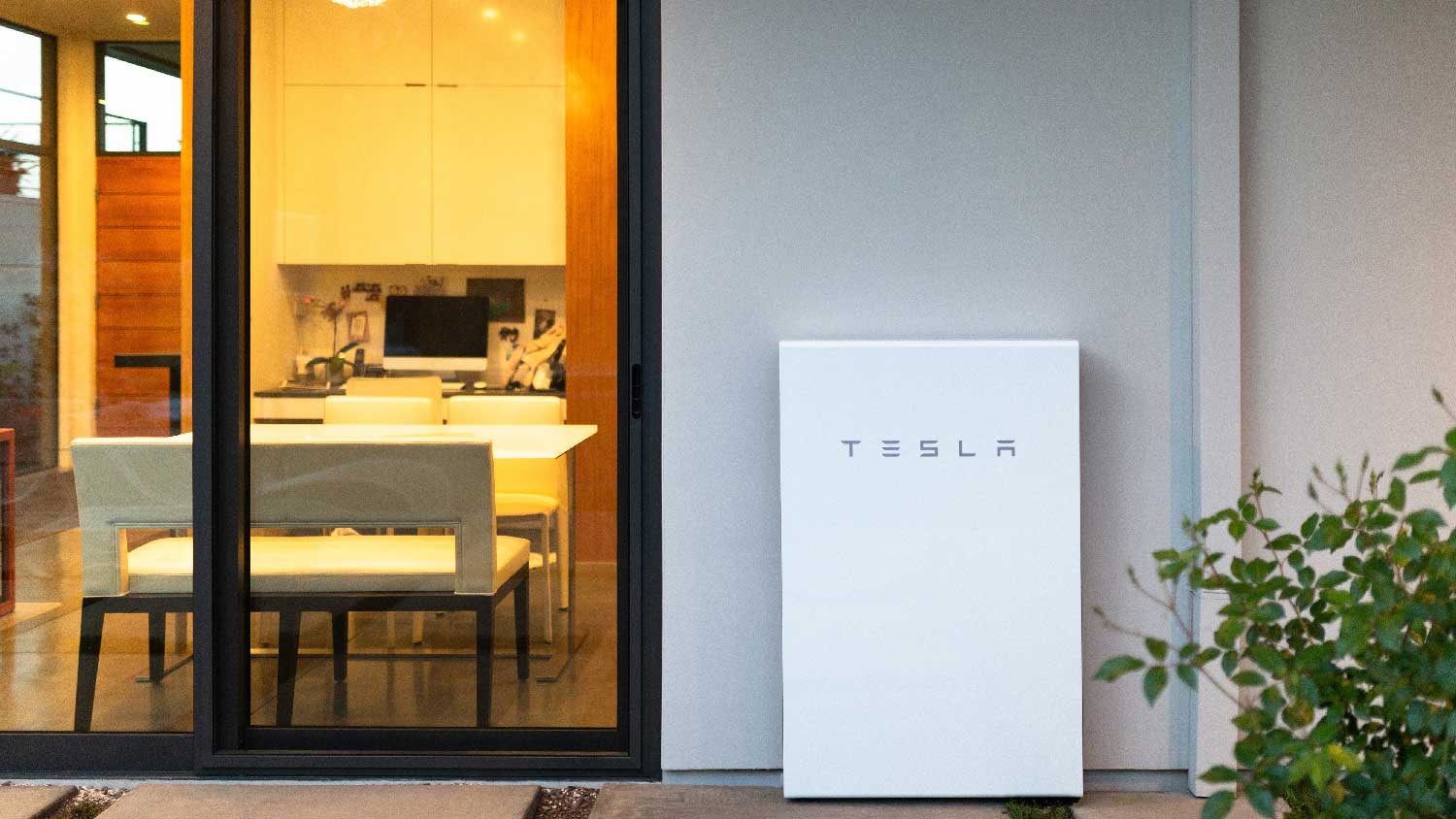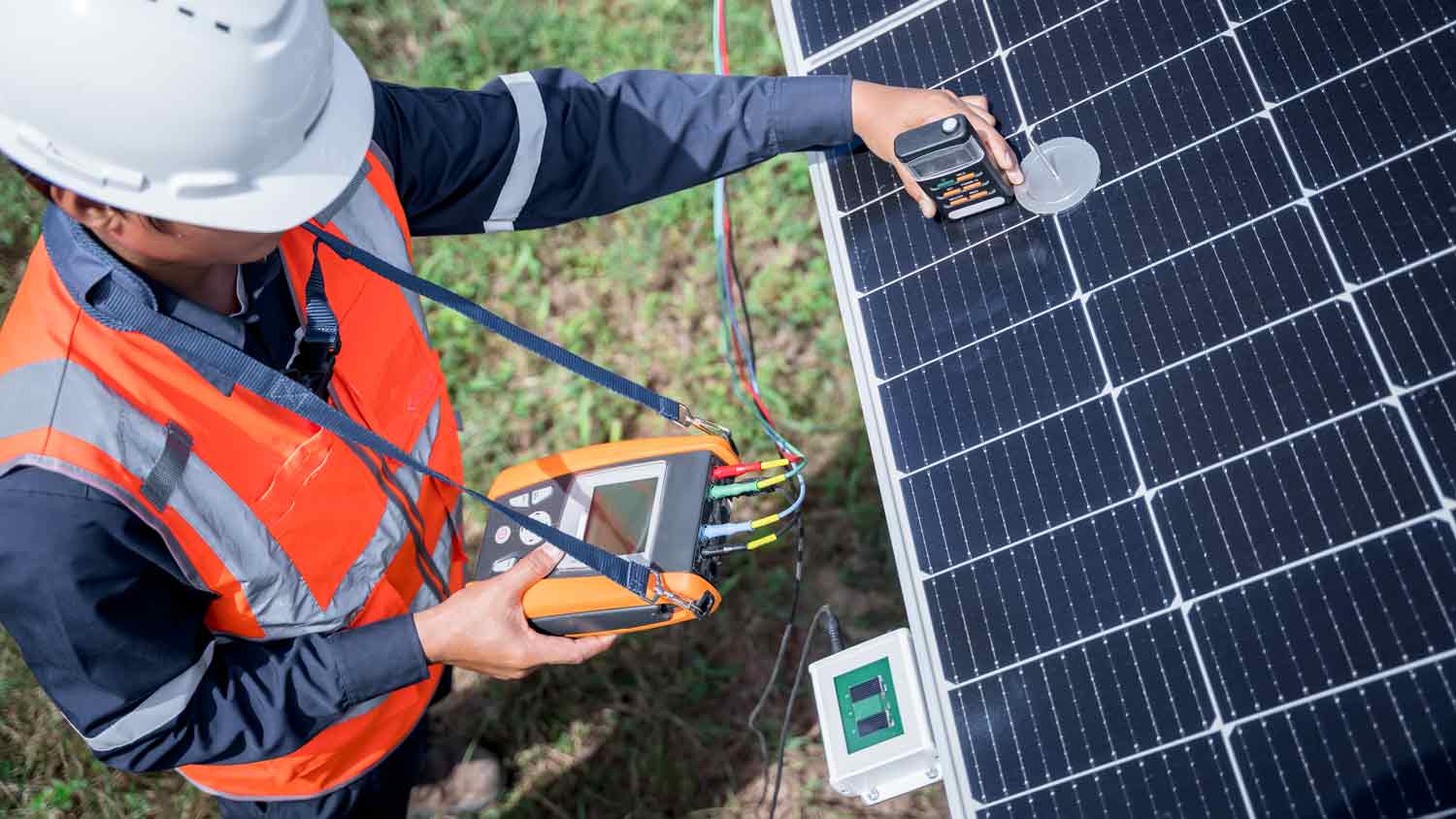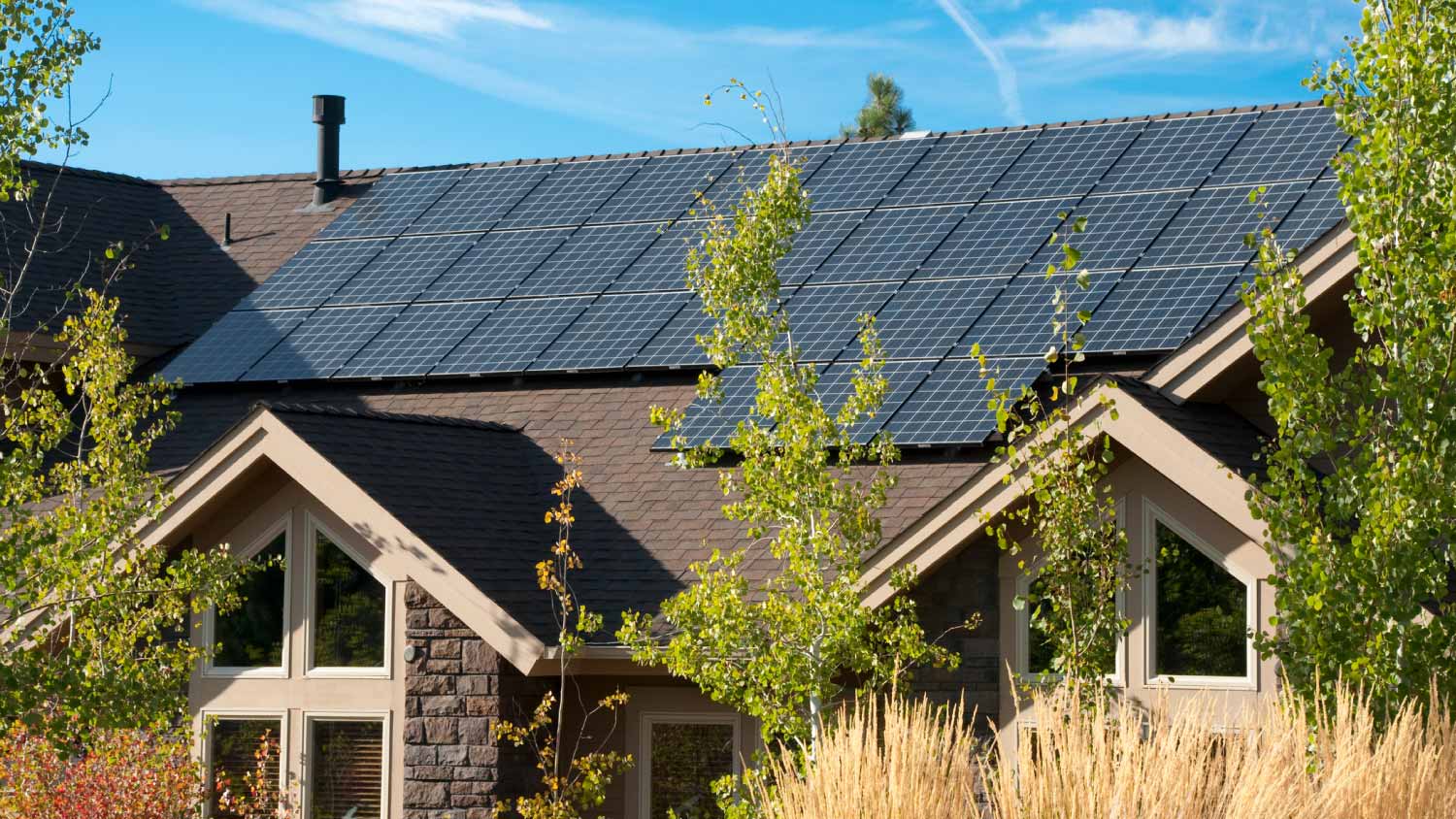
Solar battery costs depend on the size of your system, labor, and capacity. Learn how much you could pay for batteries for home solar systems.
Don’t let a failing solar panel steal your sunshine—know when it’s time for a replacement


On average, solar panels last between 25 and 30 years.
Panel quality, installation techniques, maintenance, and climate will affect the longevity of your solar panels.
While installing solar panels will cost around $27,200, the project pays for itself with six to 10 years of energy savings.
To increase the lifespan of your solar panels, commit to monthly inspections, remove dust a few times per year, trim nearby trees, and repair broken parts right away.
Solar panels can save you big bucks on your electric bill, but eventually, you’ll need to replace even the highest quality panels. Most of the time, you’ll get a couple of decades of use, but certain factors like climate and the degradation rate of your panels can impact the overall lifespan. This guide covers how long solar panels last, signs you need new ones, and the upkeep you’ll need to do.
Solar panels are the main component of any solar energy system. The average lifespan of a solar panel is 25 to 30 years, and most manufacturers offer a warranty to match. Several factors impact life expectancy, but your solar panels should last a couple of decades if they’re installed correctly and you maintain them.
Though solar panel installation costs about $27,200, it pays for itself in energy savings after six to 10 years. Extending the usability of your solar panels can increase the savings.

The degradation rate is the speed at which solar panels lose their ability to generate electricity. All solar panels eventually degrade from constant UV exposure, weather, temperature fluctuations, and continuous use that wears down the individual components. As solar panels start to degrade, they lose some of their efficiency.
This degradation rate is represented as the percentage of power output your panels lose every year. Across the industry, the average degradation rate is 0.50% annually, though the highest quality solar panels fall in the 0.30% range.
Even if your panel has an average degradation rate, the loss is gradual. Well-maintained panels can lose less than 20% of their original output toward the end of their lifespan. Proper maintenance and repairs can slow degradation.
To make your solar panels last as long as possible, purchase high-quality panels, get them installed by an expert solar panel installer near you, and maintain them properly. The following factors influence the lifespan of your solar panels.
A solar panel’s lifespan is largely determined by its quality. There are three tiers, each with a different degradation rate:
| Solar Panel Tier | Degradation Rate (Annually) |
|---|---|
| 1 | 0.30% |
| 2 | 0.50% |
| 3 | 0.80% |
Tier one solar panels are considered the highest quality. These manufacturers have produced solar panels for over five years and are held to the highest industry standards. That said, these panels do cost more than lower-quality options.
Improper installation can shorten the lifespan of your panels. They need to be mounted correctly so the components are not under excess stress. Similarly, if the wiring isn’t correct, it won’t just damage the panel—It can damage the electrical components throughout your solar energy system. DIY work can void your warranty and lead to expensive repairs, so always hire a solar panel installation contractor.
Solar panels are relatively low maintenance, but you do need to take care of them. Debris can damage your panels and reduce their electrical output. Pushing off necessary repairs can stress other parts of your system (like your inverter or battery) and cause them to fail prematurely.
Climate is out of your control, but unfortunately, it significantly affects how long your panels will last. Hot weather degrades solar panels faster than cold weather, so those in particularly warm areas notice their panels have a slightly shorter lifespan.
Other types of extreme weather (like hail, humidity, or high winds) can also damage panels. If your panels are accessible, you can use a protective cover before storms or temporarily tilt them so rain can easily roll off them.
Minor repairs (like fixing cracked glass panels or loose connections) are expected throughout the lifecycle of your solar panels. That said, there will be some signs that you need to start thinking about a replacement:
Your solar panels have a low or irregular output
You notice a big increase in your monthly electric bills
Your solar panels sustained serious damage
The cost of repairs starts to outweigh the cost of a replacement
Your solar panels are burnt, corroded, or discolored
Your panels are nearing the end of their expected lifespan
Most solar panels are made from materials you can recycle, like glass, aluminum, and copper. If you want to recycle your solar panels at the end of their lifespan, you'll need to find a local organization that handles this type of product. Solar panel recycling is still a developing industry.
Most homeowners see a return on investment from solar panels, but they require some maintenance to perform at their peak. There are a few ways you can increase the lifespan of your solar panels:
Visually inspect indoor and outdoor components once a month
Clean your solar panels to remove dust and debris two to four times per year
Use a mixture of water and mild dish soap instead of harsh or abrasive cleaners
Keep nearby trees trimmed to limit potential debris
Repair broken components as soon as possible to avoid stressing the system
Use a critter guard to protect against birds and other animals
Use a protective cover during severe storms
Tilt your solar panels so rain can roll off them
Maintenance does depend on the location of the panels. Climbing on your roof can be hazardous, so hiring a pro is best if your panels are not in an accessible area. The slight degradation over time is not worth extra hospital bills.
From average costs to expert advice, get all the answers you need to get your job done.

Solar battery costs depend on the size of your system, labor, and capacity. Learn how much you could pay for batteries for home solar systems.

Discover the Tesla Powerwall installation cost, including average prices, cost factors, and tips to help homeowners budget and save on their Powerwall project.

Discover the average solar panel inspection cost, what impacts pricing, and how to save. Get expert tips to keep your solar system efficient and safe.

Looking to heat your home with the help of the sun? Learn about different types of solar thermal collectors in this guide.

Solar panels are both energy- and cost-saving additions to your home. Use this guide to learn some solar panel cleaning tips to keep them operating efficiently.

What happens to solar power when the batteries are full? We’re here to answer that question and give you tips on what to do with the excess.